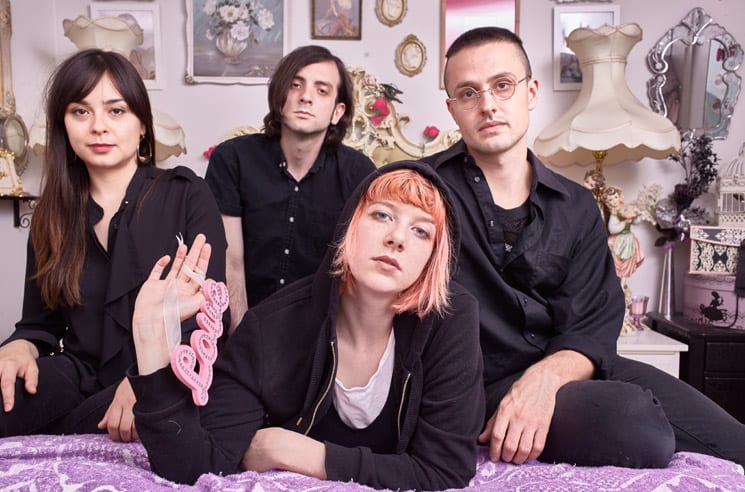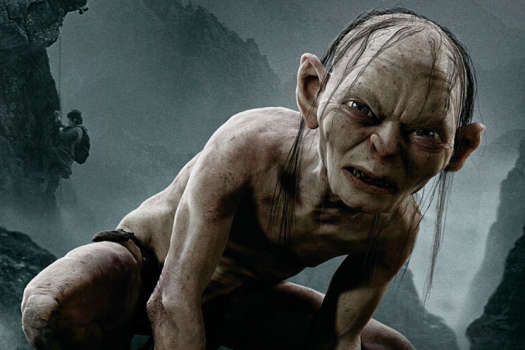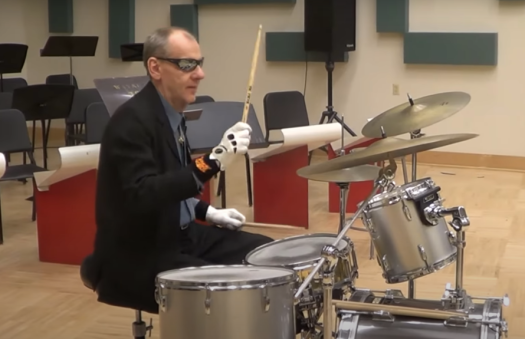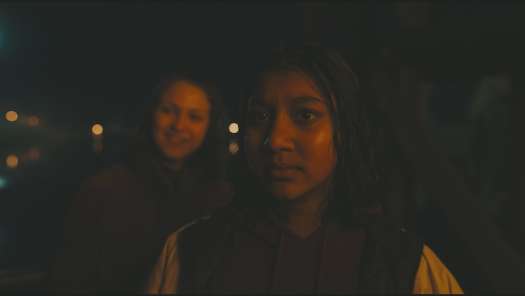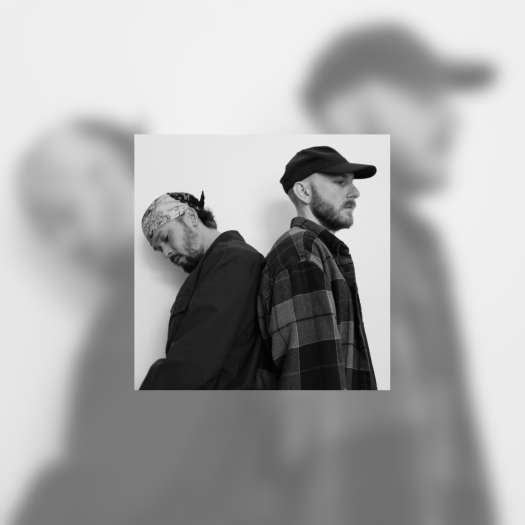If Katie Monks has her way, Dilly Dally's debut album Sore won't just catapult the quartet into rock's big leagues — it will bring all their Toronto peers along for the ride.
"We want to rep where we're from," she says. "That's art — turning your regular shitty life into something that's completely surreal."
Dilly Dally were born in Toronto in 2009, when high school friends Monks (whose older brother Dave plays in Tokyo Police Club) and Liz Ball decided to marry their love of heavy guitar rock and mainstream pop. The duo recorded a full-length in 2012, but couldn't find the "right people" to work with.
"Dilly Dally was an island in and of itself," says Monks. Things changed after they met Jude, singer-guitarist in local sludge outfit HSY and co-founder of Buzz Records, which is releasing Sore in Canada. Its roster is the nucleus of a loose-knit group of similar-minded groups on labels like Hand Drawn Dracula and Telephone Explosion. "We just looked up to them as artists at first," she says. "They're making music that's really relevant right now."
Tying the scene's disparate sounds together are producers Josh Korody and Leon Taheny. The pair recorded Dilly Dally's aborted debut, and while the complete record has never seen the light of day (some songs were released as digital singles, others were re-recorded for Sore) Monks says the experience was monumental. "The first record we did with them was huge. Josh got me into pedals in a way that I'd never been into them before. He helped me a lot with the textures with my guitar."
Hooking up with Buzz coincided with the arrival of bassist Jimmy Tony and drummer Benjamin Reinhartz, whose presence helped break the deadlock in both Dilly Dally's career and creative process. "All four of us contribute a bit more. It definitely feels less like a tug-of-war."
The result is an album teeming with feelings of "frustration, a lot of determination, a lot of pain and a lot of love," filtered through Monks' hoarse, emotive scream. Again working with Korody and Taheny, the producers layered Monks' and Ball's jagged guitar lines without losing sight of the band's talent for writing pop hooks. Elliott Smith producer Rob Schnapf mixed the record, rounding off its abrasive edges, part of a concerted effort to make Dilly Dally more accessible. "[We want to] access people with our very real, very unapologetic, very dark and very emotionally draining songs," says Monks. "It just felt so natural to take all the pop sensibilities [to] showcase or draw attention to what's happening here."
"We want to rep where we're from," she says. "That's art — turning your regular shitty life into something that's completely surreal."
Dilly Dally were born in Toronto in 2009, when high school friends Monks (whose older brother Dave plays in Tokyo Police Club) and Liz Ball decided to marry their love of heavy guitar rock and mainstream pop. The duo recorded a full-length in 2012, but couldn't find the "right people" to work with.
"Dilly Dally was an island in and of itself," says Monks. Things changed after they met Jude, singer-guitarist in local sludge outfit HSY and co-founder of Buzz Records, which is releasing Sore in Canada. Its roster is the nucleus of a loose-knit group of similar-minded groups on labels like Hand Drawn Dracula and Telephone Explosion. "We just looked up to them as artists at first," she says. "They're making music that's really relevant right now."
Tying the scene's disparate sounds together are producers Josh Korody and Leon Taheny. The pair recorded Dilly Dally's aborted debut, and while the complete record has never seen the light of day (some songs were released as digital singles, others were re-recorded for Sore) Monks says the experience was monumental. "The first record we did with them was huge. Josh got me into pedals in a way that I'd never been into them before. He helped me a lot with the textures with my guitar."
Hooking up with Buzz coincided with the arrival of bassist Jimmy Tony and drummer Benjamin Reinhartz, whose presence helped break the deadlock in both Dilly Dally's career and creative process. "All four of us contribute a bit more. It definitely feels less like a tug-of-war."
The result is an album teeming with feelings of "frustration, a lot of determination, a lot of pain and a lot of love," filtered through Monks' hoarse, emotive scream. Again working with Korody and Taheny, the producers layered Monks' and Ball's jagged guitar lines without losing sight of the band's talent for writing pop hooks. Elliott Smith producer Rob Schnapf mixed the record, rounding off its abrasive edges, part of a concerted effort to make Dilly Dally more accessible. "[We want to] access people with our very real, very unapologetic, very dark and very emotionally draining songs," says Monks. "It just felt so natural to take all the pop sensibilities [to] showcase or draw attention to what's happening here."
